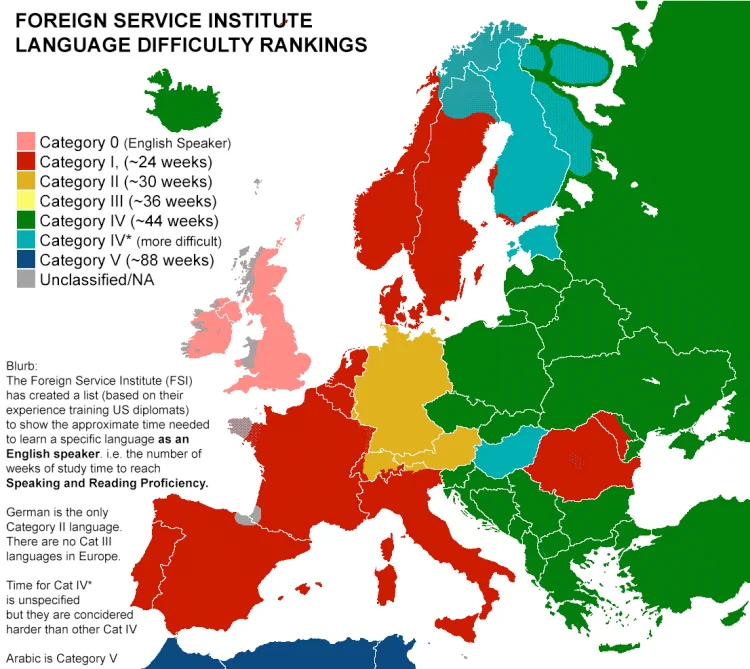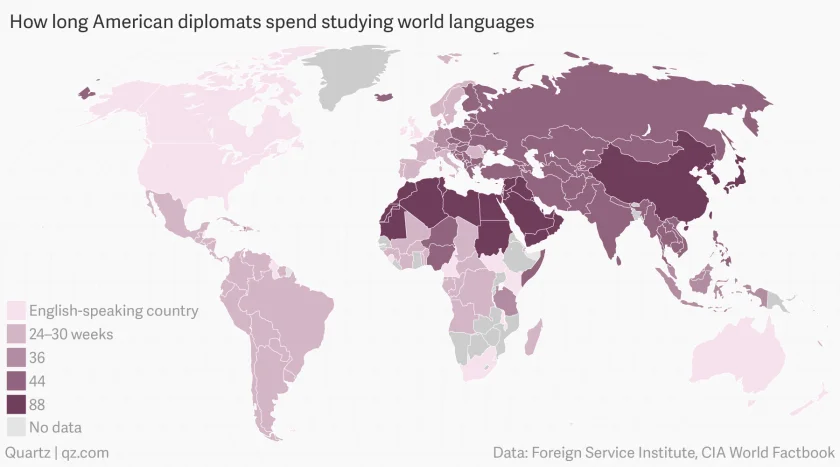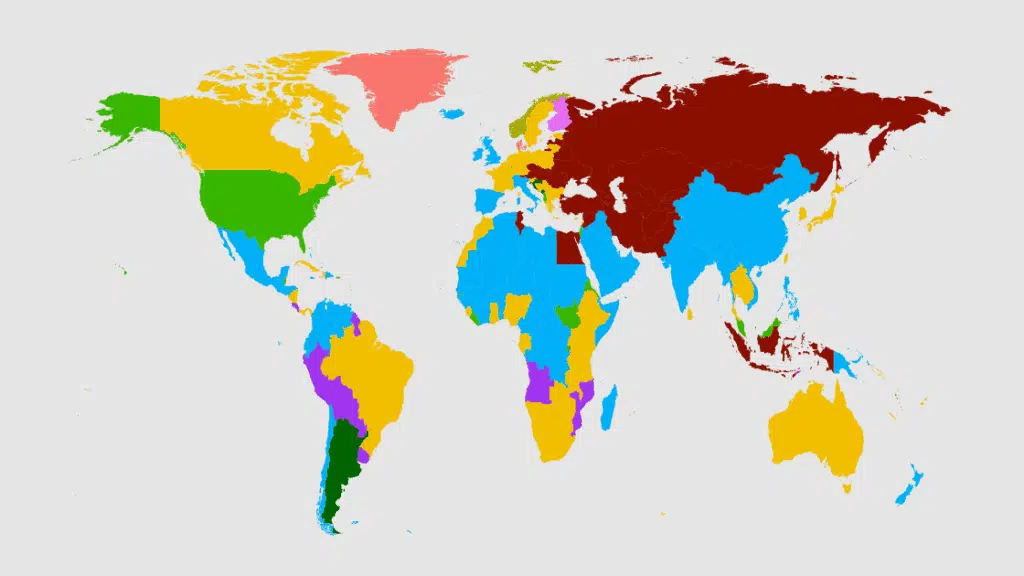The time it takes to learn a language is something every learner takes into account before deciding to learn a certain language. To help you make a time-efficient decision, The Foreign Service Institute sorted major languages around the world into 5 categories of difficulty according to their differences from English. Let’s see some maps first and then jump right to the categories of the hardest languages to learn.


CATEGORY I: 23-24 WEEKS (575-600 HOURS)
- Afrikaans
- Danish
- Dutch
- French
- Italian
- Norwegian
- Spanish
- Swedish
- Portuguese
- Romanian
CATEGORY II: 30 WEEKS (750 HOURS)
- German, which is not one of the hardest languages to learn when compared to others.
CATEGORY III: 36 WEEKS (900 HOURS)
- Indonesian
- Swahili
- Malaysian
CATEGORY IV: 44 WEEKS (1100 HOURS)
- Albanian
- Amharic
- Armenian
- Azerbaijani
- Bengali
- Bosnian
- Bulgarian
- Burmese
- Croatian
- Czech
- *Estonian
- *Finnish
- *Georgian
- Greek
- Hebrew
- Hindi
- *Hungarian
- Icelandic
- Khmer
- Lao
- Latvian
- Lithuanian
- Macedonian
- *Mongolian
- Nepali
- Pashto
- Persian (Dari, Farsi, Tajik)
- Polish is another example of languages that are considered the hardest to learn.
- Russian
- Serbian
- Sinhala
- Slovak
- Slovenian
- Tagalog
- *Thai
- Turkish
- Ukrainian
- Urdu
- Uzbek
- *Vietnamese
- Xhosa
- Zulu
CATEGORY V: 88 WEEKS (2200 HOURS)
- Arabic
- Cantonese (Chinese)
- Mandarin (Chinese)
- *Japanese is considered one of the hardest languages for English speakers to learn.
- Korean








How much time for Telugu?
How was “learning a language”defined?
Putting Polish into the 4th category is a joke
Please correct “2200 weeks” to “2200 hours” 🙂
Interesting article by the way, thank you Language Nerds! 🙂
Since the admin of this site is working, no uncertainty very quickly it will be well-known, due to its quality contents.|
I don;t find French easier than German.
Moerover, Learning French as easy as Italian and Norwegian is incredible.
Weksh?
Doing classes at the Foreign Service Institute. The ranking is an internal one.
I don’t see how it could be a joke. The ranking’s empirical. It’s a ranking of how long it took native English-speakers to attain the same level of proficiency. I could be wrong, but I don’t think that there’s a more objective measure out there.
The ranking is based on a group of students. It can’t predict with 100% accuracy what the situation will be for a given student. As far as French and German are concerned, the ranking basically serves to back up the proposition that generally, a native English-speaker will learn French faster than German. But does anyone know if the ranking takes into account knowledge of other languages? What if the speaker learning French already speaks Spanish? Or Dutch?
Where is Belarusian language?
What’s up friends, how is the whole thing, and what you wish for to say about this piece of writing, in my view its in fact remarkable in support of me.|